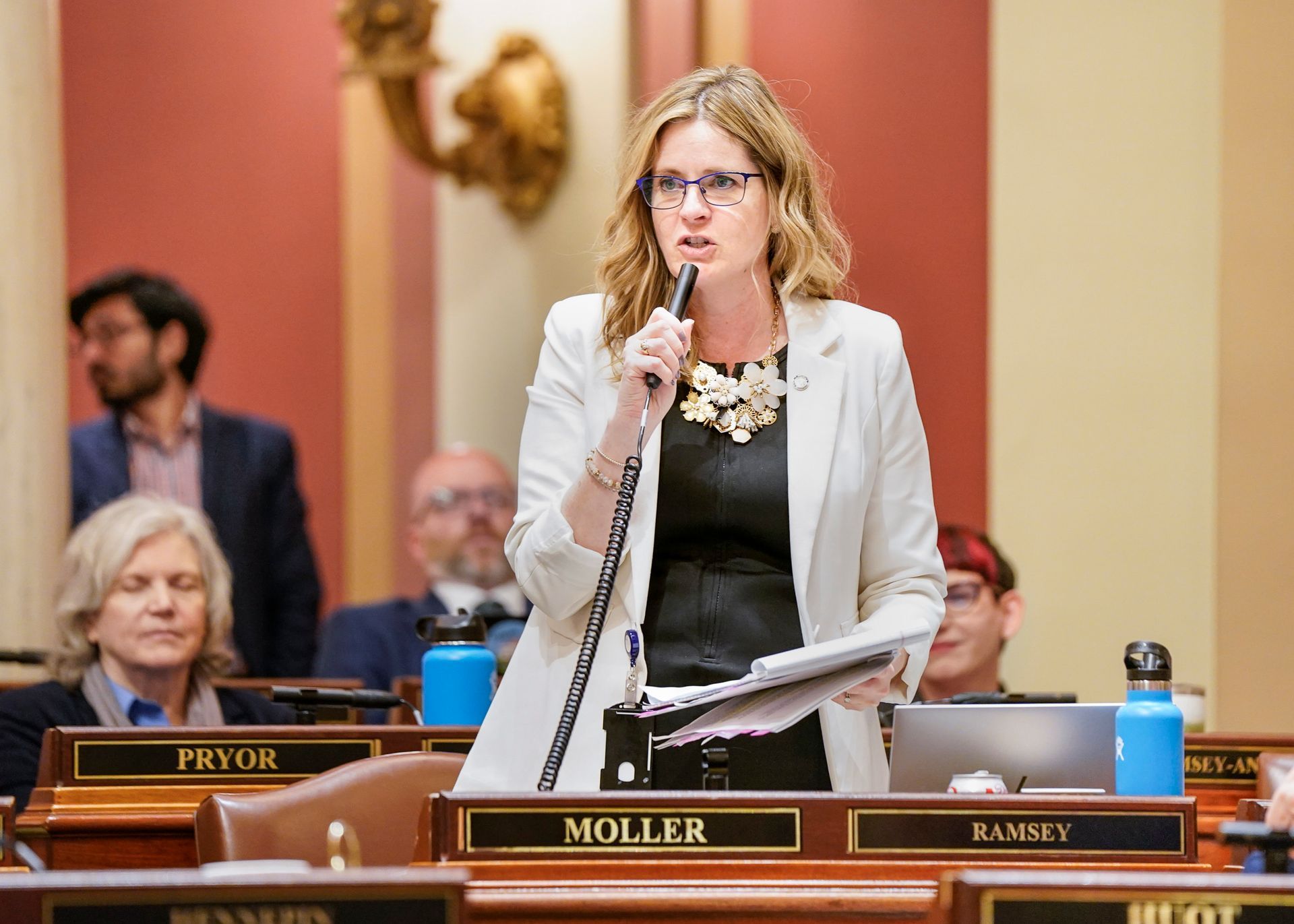Minnesota One Step Closer to Abolishing Felony Murder Rule
Measure included in public safety omnibus bill expected to be signed by Gov. Tim Walz

Tuesday morning, the Minnesota State House of Representatives passed a public safety omnibus bill (HF2890) setting budgets for state courts and the Department of Public Safety. Included in the bill is a measure to reform existing aiding and abetting murder laws, known as Felony Murder laws. Initially introduced as HF1406, sponsored by Cedrick Frazier (DFL-New Hope), the measure would limit the charge of murder to those who commit a killing, directly aid and abet the murderer, or act with such reckless disregard for human life.
“The impact of our current law has been uneven. It disproportionally impacts young people, women, and people of color,” Frazier stated. Most people convicted of aiding and abetting felony murder, he added, have no prior criminal history.
On adoption of the measure, a person could not be charged with first-degree murder unless they intentionally intend to cause a death. Prosecutors cannot seek a conviction for second-degree murder unless a person was “a major participant in the underlying felony and acted with extreme indifference to human life.” Frazier said the bill would enact recommendations of the Task Force on Aiding and Abetting Felony Murder, commissioned by the Legislature in 2021. The task force found that one-third of individuals locked up for murder in Minnesota are incarcerated under the aiding and abetting felony murder doctrine.
Hennepin County Attorney Mary Moriarty said in a statement that under current law, a person can be convicted of murder even if they were not on the scene where someone died or did not have any knowledge that the acts causing death occurred. "This can lead to “shocking and unforeseeable punishments … and to outcomes that are grossly disproportionate to an individual’s culpable conduct. That disconnect from a person’s conduct makes this punishment scheme wholly ineffective at deterring crime – people can’t be deterred from doing something they don’t intend or even know is occurring.”
The Minnesota Senate initially passed the omnibus public safety in April with a 34-33 vote along party lines, and after a conference committee convened to approve the full omnibus bill, the House approved HF2890/SF2909 by a 69-63 vote, again along party lines. The bill is expected to be signed by Governor Tim Walz (DFL).
To view the language regarding changes to Minnesota's Felony Murder laws, you can read the text of HF2890, starting at section 54.11.
Felony Murder Elimination Project would like to celebrate the extraordinary efforts of Felony Murder Law Reform - Minnesota to see this long-awaited reform brought to the precipice of becoming reality. Their tireless advocacy was essential to the Task Force on Aiding and Abetting Felony Murder, a foundational project that led to this current legislative success. You can read more about their advocacy at the Felony Murder Law Reform - Minnesota website.










